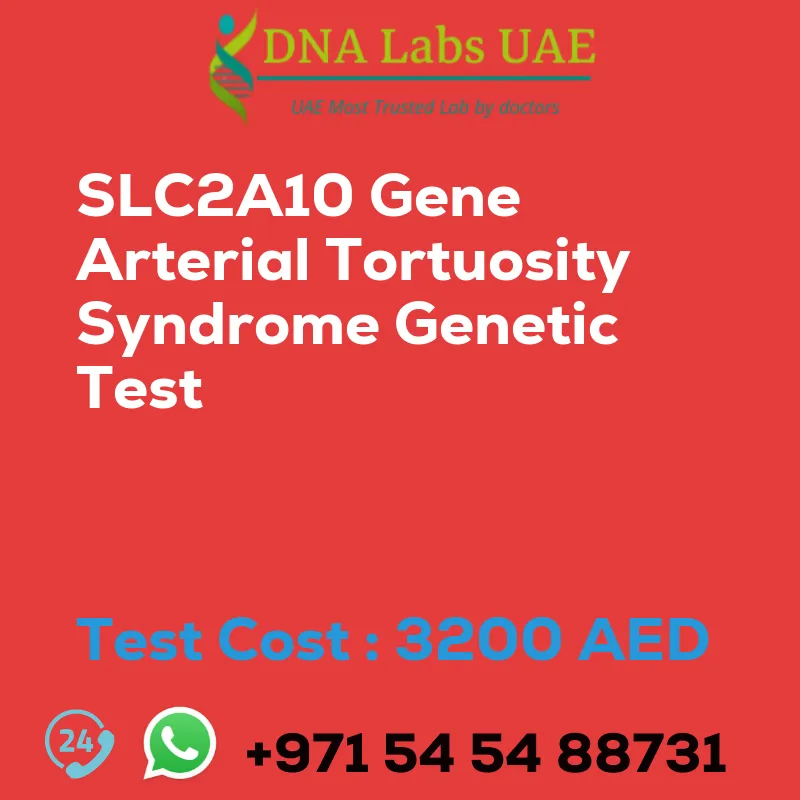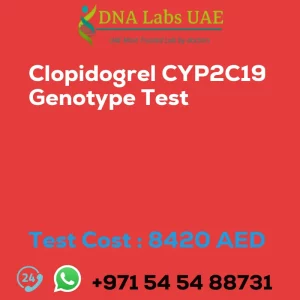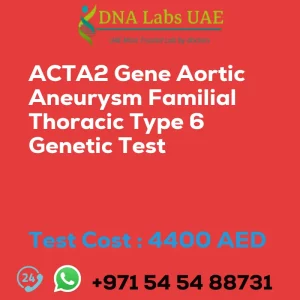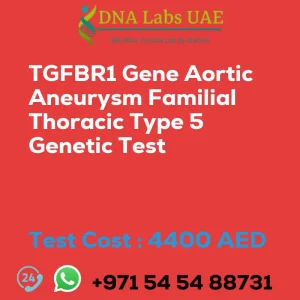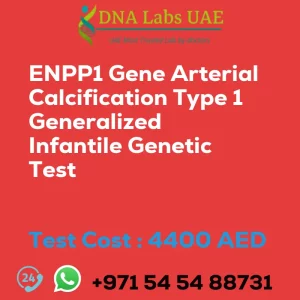SLC2A10 Gene Arterial Tortuosity Syndrome Genetic Test
Test Name: SLC2A10 Gene Arterial Tortuosity Syndrome Genetic Test
Components: Blood or Extracted DNA or One drop Blood on FTA Card
Price: 3200.0 AED
Sample Condition: Blood or Extracted DNA or One drop Blood on FTA Card
Report Delivery: 3 to 4 Weeks
Method: NGS Technology
Test type: Vascular Diseases
Doctor: General Physician
Test Department: Genetics
Pre Test Information: Clinical History of Patient who is going for SLC2A10 Gene Arterial Tortuosity Syndrome NGS Genetic DNA Test. A Genetic Counselling session to draw a pedigree chart of family members affected with SLC2A10 Gene Arterial Tortuosity Syndrome NGS Genetic DNA Test gene SLC2A10
Test Details
The SLC2A10 gene is associated with a genetic condition called Arterial Tortuosity Syndrome (ATS). ATS is a rare autosomal recessive disorder characterized by abnormal twisting and elongation of the arteries throughout the body. This can lead to various complications such as arterial aneurysms, stenosis, and dissections.
NGS (Next-Generation Sequencing) genetic testing refers to a type of genetic test that uses advanced sequencing technology to analyze multiple genes simultaneously. In the context of ATS, NGS genetic testing can be used to identify mutations or variations in the SLC2A10 gene that are responsible for causing the condition.
The NGS genetic test for ATS involves obtaining a DNA sample, usually through a blood or saliva sample, from the individual suspected to have the condition. The DNA is then sequenced using NGS technology, which allows for the detection of variations in the SLC2A10 gene. These variations can include single nucleotide variants (SNVs), insertions, deletions, or other structural changes in the gene.
The results of the NGS genetic test can help confirm a diagnosis of ATS and provide information about the specific genetic variant(s) present in the SLC2A10 gene. This information can be useful for genetic counseling, family planning, and potentially guiding treatment decisions for individuals with ATS.
| Test Name | SLC2A10 Gene Arterial Tortuosity Syndrome Genetic Test |
|---|---|
| Components | |
| Price | 3200.0 AED |
| Sample Condition | Blood or Extracted DNA or One drop Blood on FTA Card |
| Report Delivery | 3 to 4 Weeks |
| Method | NGS Technology |
| Test type | Vascular Diseases |
| Doctor | General Physician |
| Test Department: | Genetics |
| Pre Test Information | Clinical History of Patient who is going for SLC2A10 Gene Arterial Tortuosity Syndrome NGS Genetic DNA Test. A Genetic Counselling session to draw a pedigree chart of family members affected with SLC2A10 Gene Arterial Tortuosity Syndrome NGS Genetic DNA Test gene SLC2A10 |
| Test Details |
The SLC2A10 gene is associated with a genetic condition called Arterial Tortuosity Syndrome (ATS). ATS is a rare autosomal recessive disorder characterized by abnormal twisting and elongation of the arteries throughout the body. This can lead to various complications such as arterial aneurysms, stenosis, and dissections. NGS (Next-Generation Sequencing) genetic testing refers to a type of genetic test that uses advanced sequencing technology to analyze multiple genes simultaneously. In the context of ATS, NGS genetic testing can be used to identify mutations or variations in the SLC2A10 gene that are responsible for causing the condition. The NGS genetic test for ATS involves obtaining a DNA sample, usually through a blood or saliva sample, from the individual suspected to have the condition. The DNA is then sequenced using NGS technology, which allows for the detection of variations in the SLC2A10 gene. These variations can include single nucleotide variants (SNVs), insertions, deletions, or other structural changes in the gene. The results of the NGS genetic test can help confirm a diagnosis of ATS and provide information about the specific genetic variant(s) present in the SLC2A10 gene. This information can be useful for genetic counseling, family planning, and potentially guiding treatment decisions for individuals with ATS. |

